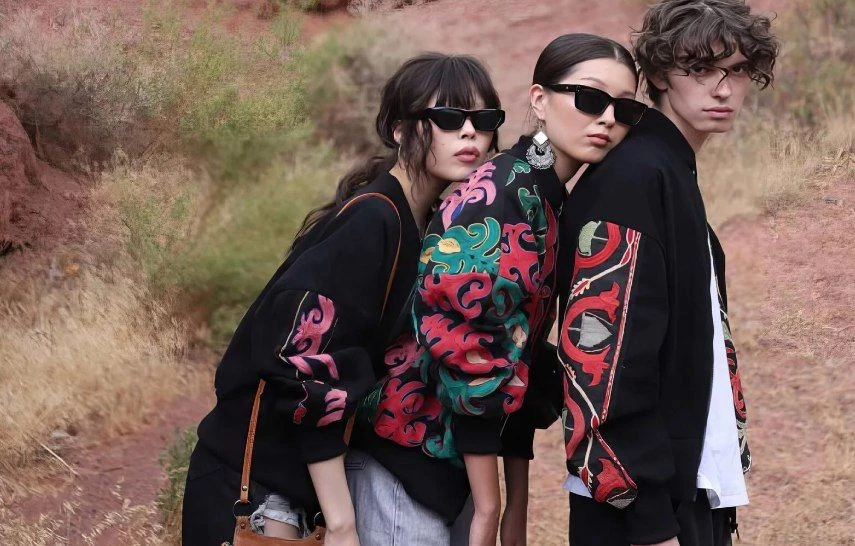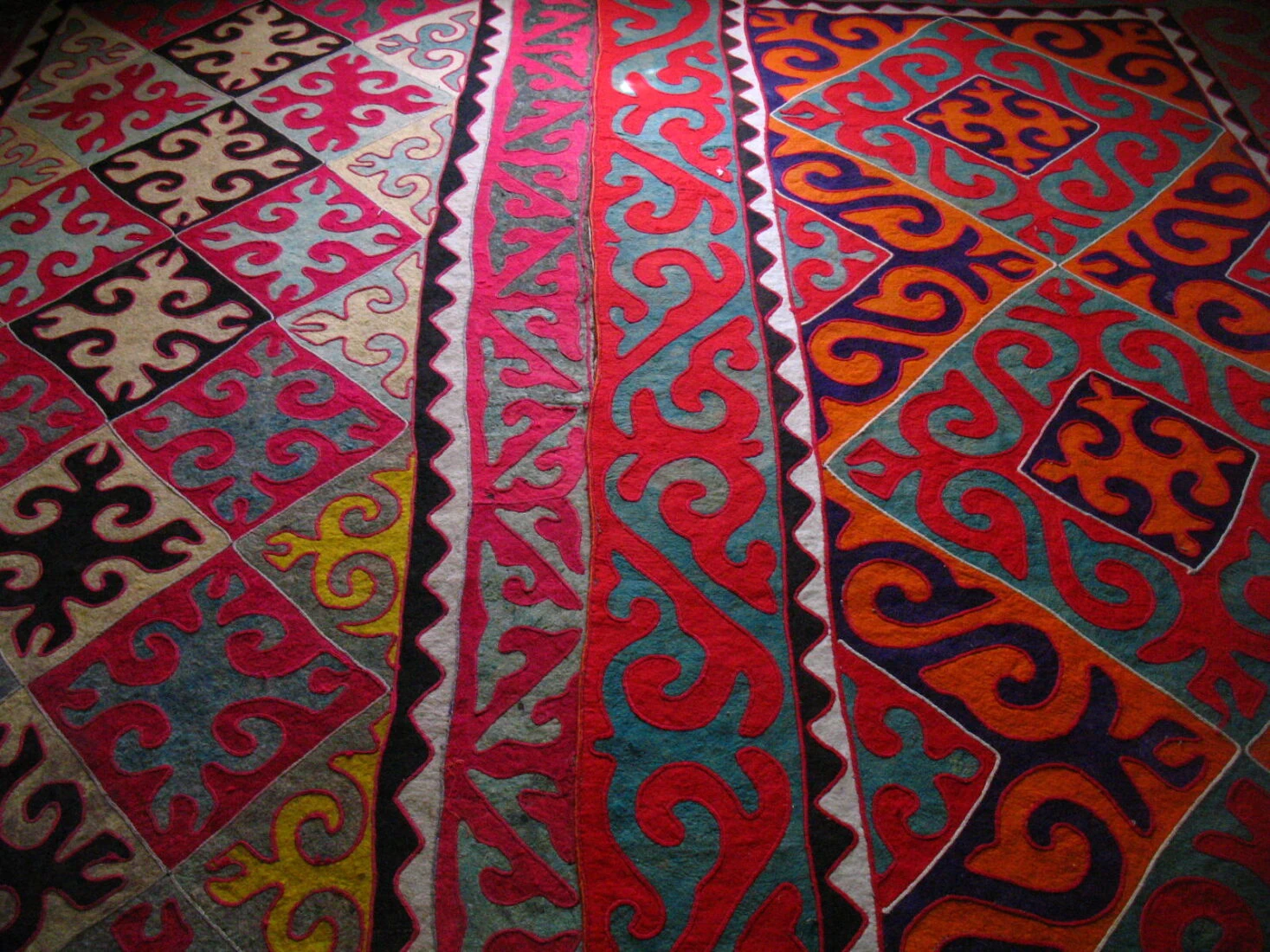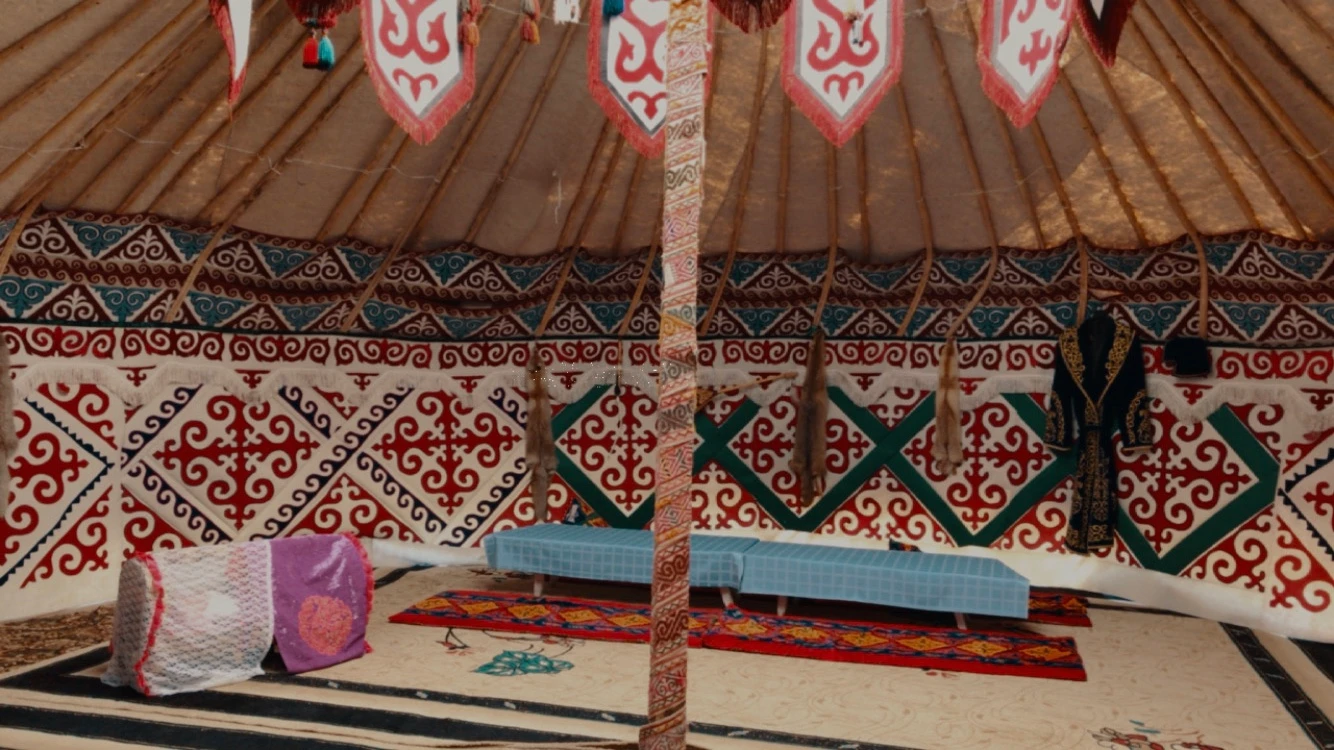Russian fashion brand Yaka sparks outrage over claims to Kyrgyz designs
 Russian brand Yaka's fashion lineup that is criticized by Kyrgyz authorities, accessed on 20 February, 2025. (Photo via Yaka website)
Russian brand Yaka's fashion lineup that is criticized by Kyrgyz authorities, accessed on 20 February, 2025. (Photo via Yaka website)
The Kyrgyz culture ministry issued a strongly worded statement Wednesday on Facebook, responding to claims by Russian fashion label Yaka over traditional Kyrgyz designs.
“Recently, there has been an alarming trend related to the commercial use of national patterns and symbols, which are an integral part of the historical and cultural heritage of Kyrgyzstan,” the ministry declared, calling for respect of the nation’s cultural patrimony.
At the heart of the controversy is Yaka, founded in 2023 by Russian entrepreneur Anna Obydenova. The brand markets itself as “modern ethno-chic,” selling clothing and accessories adorned with traditional Kyrgyz patterns.
Russian fashion brand Yaka under scrutiny for copyrighting cultural Kyrgyz patterns
Most contentiously, the company includes legal warnings against copying its designs – patterns that Kyrgyz critics say have been part of their cultural heritage for centuries.
Among Yaka’s offerings are “shyrdaks,” traditional felt rugs that carry deep cultural significance in Kyrgyz society. These intricately designed rugs, recognized by UNESCO as part of the country’s intangible cultural heritage, traditionally serve as cherished dowry items at weddings.
The rugs’ patterns often tell stories of nomadic life and contain symbols passed down through generations.

The dispute took an inflammatory turn when Obydenova responded to criticism with an Instagram video telling Kyrgyz critics to “learn Russian better” – a comment that touched raw nerves in a country still grappling with its Soviet past.
Though she later deleted the video and apologized, the incident had already sparked widespread outrage on social media platforms.
Fashion brand YAKA founder defends her position not calling herself ‘designer of the motifs’
Obydenova attempted to defuse the situation Tuesday with an Instagram post defending her business practices. “I never said I came up with these patterns, nor did I call myself a designer or author of the motifs,” she wrote.

“I am simply a person who saw incredible beauty and wanted to share it with the world.” She emphasized her collaboration with local craftswomen, though critics argue this doesn’t justify claiming commercial rights over traditional designs.
The controversy reflects broader tensions in Kyrgyzstan’s relationship with Russia. While Russian remains an official language and many Kyrgyz maintain pro-Russian attitudes, there’s growing pushback, particularly among younger generations.
This shift has been accelerated by Russia’s invasion of Ukraine and the treatment of Kyrgyz migrant workers in Russia, where Central Asian laborers often face discrimination and harsh working conditions.
Kyrgyzstan leverages free media in rare criticism of Russia
Unlike its more authoritarian neighbors, Kyrgyzstan maintains a relatively free media environment and looser controls on social networks, allowing for more open discourse about sensitive topics. However, direct criticism of Russia remains relatively rare, making the ministry’s public stance on this issue particularly noteworthy.
The dispute also highlights a growing global debate about cultural appropriation in fashion. Similar controversies have emerged worldwide, with indigenous and traditional communities challenging fashion brands’ use of their cultural elements for profit.
The UNESCO recognition of shyrdaks as intangible cultural heritage in 2012 underscores their significance not just as decorative items but as crucial elements of Kyrgyz cultural identity.
Kyrgyzstan’s assertion of its cultural rights comes amid broader efforts to reinforce its national identity. Since gaining independence in 1991 following the Soviet Union’s collapse, the country has worked to revive and protect its traditional culture, including its nomadic heritage and artistic traditions.



